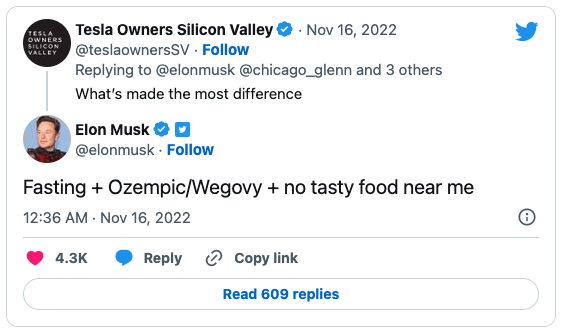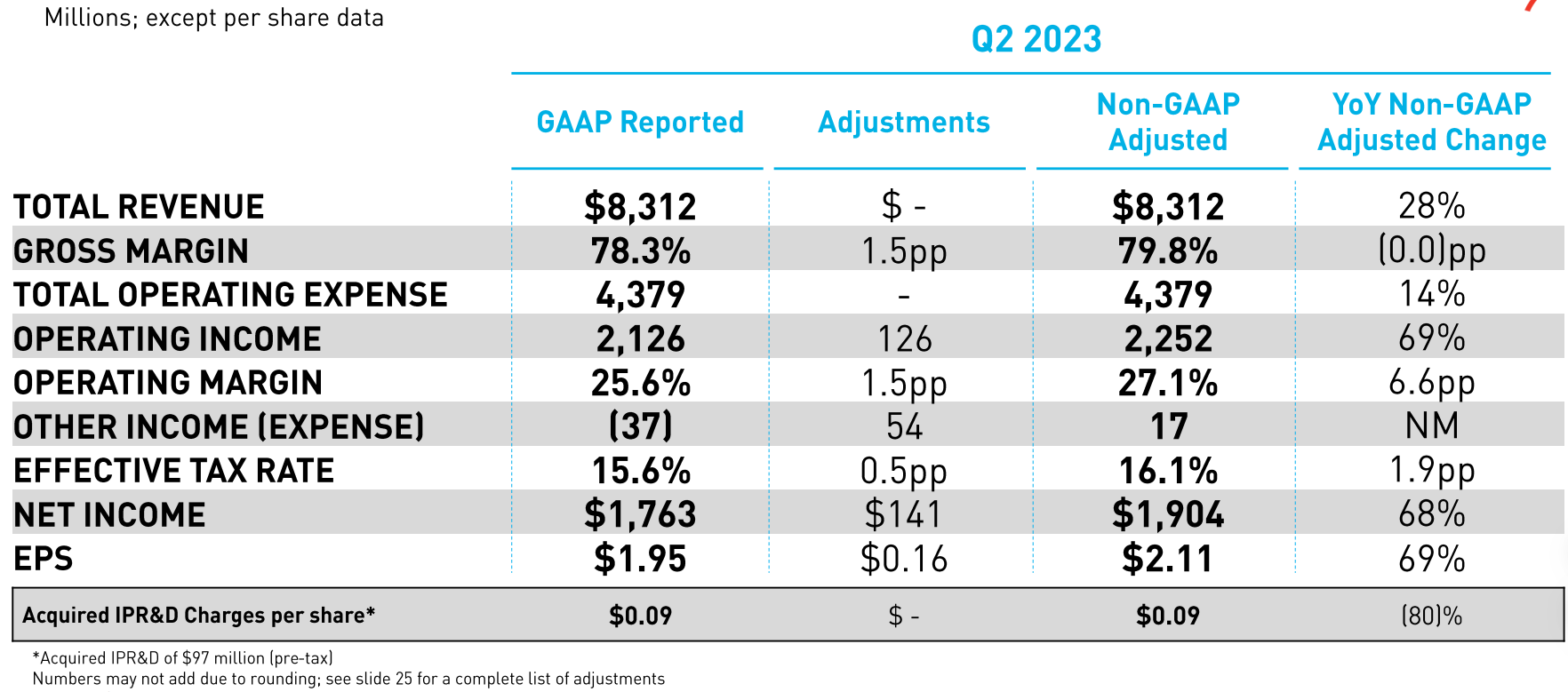How Novo Ranked The Top Stock Of Europe?
The news of the weight-loss drug Wegovy from $Novo-Nordisk A/S(NVO)$ entering the UK market stimulated the company's stock price to close up 0.7%, with a market value of $428 billion.
Meanwhile, luxury goods giant $LVMH-Moet Hennessy Louis Vuitton(LVMHF)$ stock price fell 0.4%, with a market value of approximately $419 billion. The weight-loss drug has defeated the big brand bags and won the title of the most valuable European stock.
Exaggerated Demand for weight loss pills Semaglutide
In early August, Novo Nordisk announced the results of the SELECT Phase 3 clinical trial for Semaglutide. The analysis showed that the trial met its primary endpoint, with a 20% reduction in the risk of major adverse cardiovascular events in overweight or obese adults receiving a weekly subcutaneous injection of 2.4 mg of semaglutide (patients without a history of diabetes).
Novo Nordisk expects to apply for regulatory approval for expanded indications of semaglutide in the United States and the European Union later this year.
How about the Peers?
Wegovy (targeting the same receptors) holds the highest market buzz currently. It was even speculated to be the secret behind the weight loss of former richest person Elon Musk of $Tesla Motors(TSLA)$ thus contributing to Novo Nordisk's growth (investors believe the profit potential of diabates drugs might have been underestimated). Furthermore, Novo Nordisk's latest clinical data indicates a 20% reduction in the risk of heart disease for participants.
Earlier, a significant 15% surge in a single day for $Eli Lilly(LLY)$ and a 17% surge for NVO attributed to the immense attention garnered by diabates drugs.
However, $Pfizer(PFE)$ has left behind. June 26, Pfizered the decline with a decrease of 3.6% due to its announcement of discontinuing the development of its experimental weight loss and diabetes drug, lotiglipron. This highly anticipated drug showed elevated liver enzymes in experimental patients during mid-term clinical trials, indicating potential liver cell damage, although no liver-related symptoms or side effects were observed in the patients.
But NVO’s semaglutide is the first drug clinically proven to reduce the risk of cardiovascular disease in weight loss drugs. According to Hertzel Gerstein, the deputy director of the Canadian Population Health Research Institute (PHRI), the positive results of this trial primarily mean two things:
first, patient groups like those in the trial should receive GLP-1 targeted therapy such as semaglutide in addition to other heart protective therapies;
second, the known heart protective effects of targeting GLP-1 are not limited to diabetic patients.
Besides, Israeli biomedical company Epitomee Medical has announced that its experimental weight loss capsules developed in collaboration with $Nestle S.A.(NSRGY)$ have achieved success in key trials, although the company has not disclosed the full results of the research and has not indicated whether the results are statistically significant. Epitomee plans to seek FDA approval to market the product in the United States.
Epitomee's weight loss capsules are a medical device designed to activate biological pathways, regulate satiety, and food intake. Nestlé Health Science holds exclusive rights to commercialize the capsules and collaborated with Epitomee in conducting the trials.
What’s more important?
This result has far-reaching implications for Novo Nordisk, not only expanding the range of drug applications, but more importantly, it may affect the scope of reimbursement by US health insurance, which is of great significance for Novo Nordisk's revenue.
According to a new survey by KFF, about 45% of adult Americans surveyed expressed interest in taking "safe and effective weight loss drugs." However, without insurance coverage, only 16% of adults are still interested in taking weight loss drugs. Wegovy is a completely self-funded product in the US market. Without insurance, using Wegovy could cost over $16,000 per year.
Investors are unconcerned about the significant impact of the upcoming negotiations on the industry, as mandated by last year's Inflation Reduction Act (IRA).
According to the Biden administration, the drugs listed in this document, used to treat various diseases ranging from heart conditions to cancer, accounted for $50.5 billion, approximately 20% of total Medicare Part D expenditures during the 12 months ending on May 31, 2023.
Medicare Part D – HTA Insurance Services
However, the Pharmaceutical Research and Manufacturers of America (PhRMA), a trade group representing the pharmaceutical industry, criticized this move, stating that it will result in revisions to drug prices under the Medicare Part D program in 2026.
Disclaimer: Investing carries risk. This is not financial advice. The above content should not be regarded as an offer, recommendation, or solicitation on acquiring or disposing of any financial products, any associated discussions, comments, or posts by author or other users should not be considered as such either. It is solely for general information purpose only, which does not consider your own investment objectives, financial situations or needs. TTM assumes no responsibility or warranty for the accuracy and completeness of the information, investors should do their own research and may seek professional advice before investing.



My recommendation is for NVO to keep managing EXACTLY as they have been! Owned since 2009 and on August 8, 2023 my 1,000 shares gained $27,800 in one day.
NVO is one of the best run companies in the world. Just ck out their 20-10-5 yr charts u will see a global behemoth in the making. As they expand out of diabetes into other disease states their growth is unlimited.
If you have a significant holding in NOV you could be at the start of a phenomenal return company like a Microsoft/Amazon or Alphabet.
NVO overcame LVHM as the most valuable company in Europe!!!!!!!!
Novo Nordisk is now the most valuable company in Europe